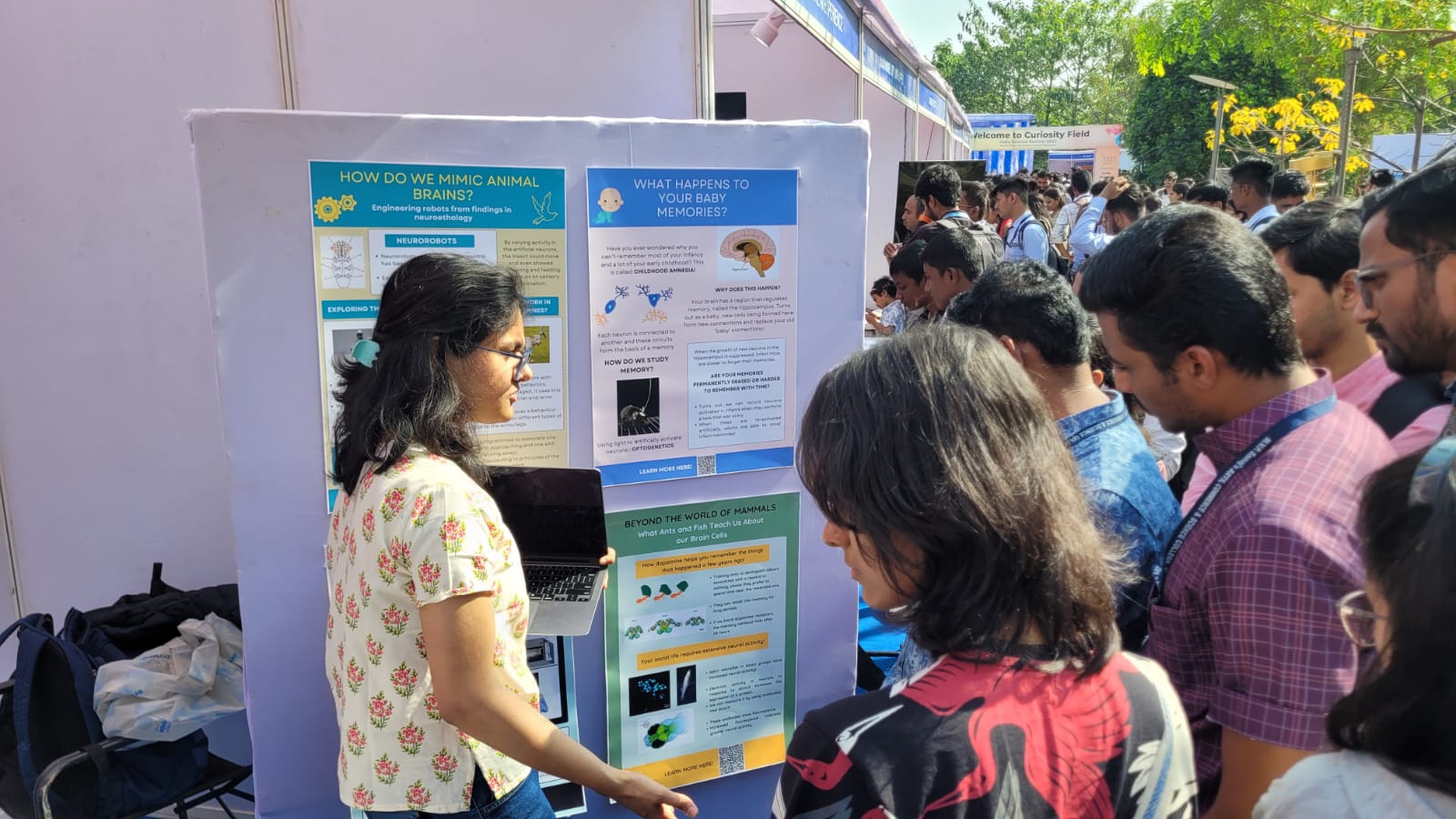
Spatika Jayaram writes about her recent participation in the India Science Festival, explaining how behavioural neuroscience works.
It was wonderful interacting with school and college students, academics and professionals, particularly those from state schools and colleges, otherwise unable to access resources to proceed in scientific research.
Spatika Jayaram
Why do we forget most of our memories from infancy? How can psychedelics help rats decide better? What happens when worms are high on cannabis?
These were some of the questions I was asked at the India Science Festival (ISF), organised by the Foundation for Advancing Science and Technology, India. The festival was held at the Indian Institute of Science Education and Research (IISER), Pune, India, in January.
It focused on the interplay of science, technology and innovation, with this year’s theme exploring ‘Mind, machines and the endless frontier’ through new age science communication and outreach initiatives in India.
I was awarded an Outreach Grant from the Society for Experimental Biology to attend the festival to broaden the scope for experimental neuroscience research within India. ISF is a nationwide, one-of-a-kind science festival in India, bringing scientists, industry professionals and science policy individuals together.
 At ISF, I hosted a booth explaining behavioural neuroscience through educational posters. We received support from professors at the institute and demonstrated a live mouse brain and wriggling microscopic worms (C. elegans) for people to see. We also had a screen displaying experiments on how rats show empathy, how birds communicate and how mice navigate virtual-reality experiments.
At ISF, I hosted a booth explaining behavioural neuroscience through educational posters. We received support from professors at the institute and demonstrated a live mouse brain and wriggling microscopic worms (C. elegans) for people to see. We also had a screen displaying experiments on how rats show empathy, how birds communicate and how mice navigate virtual-reality experiments.
I was also selected to be a finalist for a contest called Talk Your Thesis, which involved communicating my research to a wide audience in six minutes. My talk was entitled ‘A Tale of Two Transmitters : Serotonin and Friends’, and explored how brain chemicals need to work together for normal functioning and how they work in depression.
A video of my talk will be up soon, but it has been put up on the institute’s Instagram page. The festival witnessed over 20,000 attendees. It was wonderful interacting with school and college students, academics and professionals, particularly those from state schools and colleges, otherwise unable to access resources to proceed in scientific research. Several attendees said it was the first time they had heard from a scientist.
*Spatika Jayaram [2023] is doing a PhD in Physiology, Development and Neuroscience.












